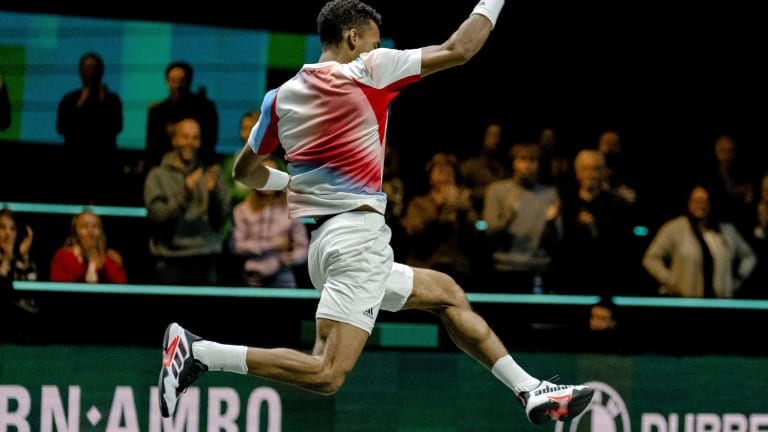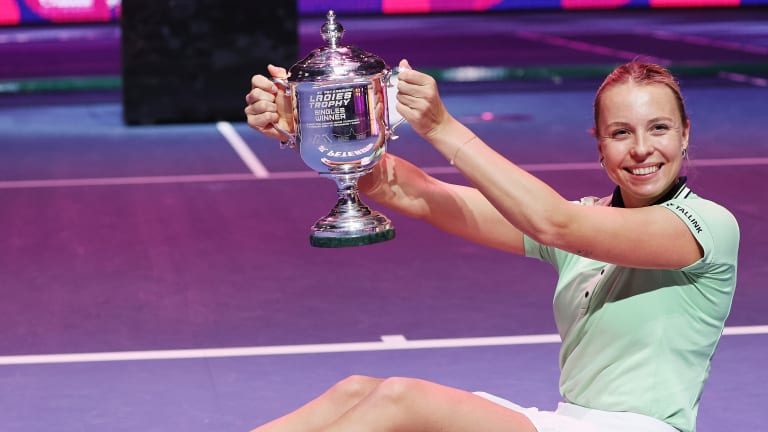ATP Rotterdam, Netherlands
Weekend Winners: First title in nine tries for Félix Auger-Aliassime; Anett Kontaveit continues indoor dominance
By Feb 13, 2022ATP Rotterdam, Netherlands
Alex de Minaur defeats Felix Auger-Aliassime to win first indoor title of career in Rotterdam
By Feb 15, 2026ATP Rotterdam, Netherlands
After Australian Open victory, Carlos Alcaraz won't defend Rotterdam title
By Feb 02, 2026ATP Rotterdam, Netherlands
Carlos Alcaraz tops Alex de Minaur to win first indoor title in Rotterdam debut
By Feb 09, 2025ATP Rotterdam, Netherlands
Carlos Alcaraz battles past Hubert Hurkacz in Rotterdam to reach first indoor final of career
By Feb 08, 2025ATP Rotterdam, Netherlands
Carlos Alcaraz books Hubert Hurkacz Rotterdam semifinal
By Feb 07, 2025ATP Rotterdam, Netherlands
WATCH: Carlos Alcaraz adds behind-the-back shot to highlight reel in Rotterdam
By Feb 06, 2025ATP Rotterdam, Netherlands
Mattia Bellucci scores Rotterdam upset vs. Daniil Medvedev
By Feb 05, 2025ATP Rotterdam, Netherlands
Carlos Alcaraz wins US Open rematch vs Botic van de Zandschulp
By Feb 04, 2025ATP Rotterdam, Netherlands
WATCH: Angry Daniil Medvedev mocks umpire for time violation
By Feb 03, 2025Weekend Winners: First title in nine tries for Félix Auger-Aliassime; Anett Kontaveit continues indoor dominance
The Canadian youngster at last captured his first ATP trophy, while Kontaveit surged back from the brink against Maria Sakkari.
Published Feb 13, 2022
Advertising
Advertising

Auger-Aliassime has made great strides at Grand Slam tournaments in the last 12 months, reaching the US Open semifinals last summer.
© ANP/AFP via Getty Images
Advertising

Unlike FAA, winning finals has been the least of Anett Kontaveit's troubles of late: the Estonian has won five of her last six.
© Getty Images